(JNS) A coalition of countries led by France—including the United Kingdom, Canada, Belgium, Australia and Portugal—are preparing to formally recognize a Palestinian state at the 80th United Nations General Assembly (Sept. 9–23) in New York.
Israeli legal experts warn the move will intensify political tensions surrounding the already fraught Israel-Palestinian conflict. They recommend Israel act decisively, urging it to make clear to its allies that any attempt to impose “foreign diktats” will come at a price.
Arsen Ostrovsky, a leading human rights attorney, CEO of the International Legal Forum and senior fellow at the Misgav Institute for National Security, and Anne Herzberg, legal adviser at NGO Monitor, spoke with JNS about the implications of the planned recognitions.
Both agreed that Israel cannot afford to remain passive in the face of what they view as unilateral and destructive moves.
“Israel must make clear to other countries, as they have already, that they will not sit idly by in the face of unilateral recognitions of a Palestinian state,” said Ostrovsky, noting that Israel did well to reject French President Emmanuel Macron’s recent request to visit Israel, and to revoke visas for Australian representatives in Ramallah.
“These countries cannot expect it to be ‘business as usual’ as long as they conduct such actions,” Ostrovsky told JNS, adding that the Palestinian Authority, “which has been spearheading these initiatives,” must also be the subject of “punitive measures.”
He suggested holding its tax revenue and ceasing security collaboration. “You will also likely see some elements of the Israeli government calling for application of sovereignty in Judea and Samaria as a response,” he said.
The more right-wing members of Israeli Prime Minister Benjamin Netanyahu’s coalition did exactly that at a Cabinet meeting last week. Reports say Netanyahu scotched the idea in response to United Arab Emirates warnings that extending sovereignty would threaten the Abraham Accords.
Herzberg agreed Israel should be prepared to take concrete retaliatory steps, such as expelling consulates and denying visas to European NGOs. Of a European Union office located near Hebrew University, which acts as representation to the PA, she said Israel should “kick it out.”
Israel should wage a persuasive diplomatic campaign at the United Nations itself, according to Herzberg. “Israel has to lay out a very strong speech against recognizing Palestinian statehood by underscoring Palestinian intransigence. It can’t be just antisemitism accusations. Israel needs to present a cogent case for why this undermines the peace process,” she said.
Little practical meaning
“These upcoming unilateral recognitions are entirely performative gestures and symbolic stunts, playing more to these countries’ domestic audiences than advancing any meaningful policy or peace in the Middle East,” said Ostrovsky. “At the end of the day, you can say the earth is flat a hundred times from the UN podium in New York, and that will still not make it real.”
Herzberg said that even at the United Nations, if the Palestinians were admitted as a full member state, substantive change would be limited. “Literally not much would change, except in terms of when they can speak during debates,” she said. While membership could allow Palestinians to sponsor more resolutions and potentially seek a seat on the Security Council, she described the practical consequences as “mostly symbolic.”
PA President Mahmoud Abbas is expected to use the UN General Assembly platform to formally declare a Palestinian state.
Herzberg warned that if Abbas does indeed make such a declaration, it “signifies the complete collapse and end of the peace process because the entire paradigm of the peace process was that there was supposed to be a negotiated solution to the conflict.”
The Oslo framework, which created the PA, would be effectively abandoned. “They’ve been undermining it for years, but there is a fiction that it still exists, and it does exist in some ways. There is still Israeli security cooperation with the PA,” she said.
The United States has denied visas to PA representatives, preventing them from coming to the UN General Assembly. While approving of the US move, neither Ostrovsky nor Herzberg thought it would prevent a declaration if Abbas was determined to do so.
Expect a spectacle
Ostrovsky predicted the General Assembly would devolve into a circus of anti-Israel denunciations. “It will be a spectacle on steroids, with every imaginable blood libel you can think of,” he said. Expect charges of genocide, starvation, fabricated photos of famine, and “antisemitic rants dressed up as human rights speeches.”
“Above all, expect leaders seeking a 15-second viral clip, playing to their domestic audience instead of dealing with reality: that Hamas continues to hold hostages captive and refuses to surrender,” he said.
Herzberg anticipates that American displeasure could temper some of the planned recognitions. “I’m sure the US government is going to exert a lot of pressure on those countries,” she said, noting that Germany has already announced it will not support recognition—a significant development given its influence within the European Union.
She suggested that countries like the United Kingdom, Canada and Australia also may water down their positions under pressure from Washington.
They underscored that declaring a Palestinian state does not make it so. International law sets clear criteria for statehood, which the Palestinians do not meet. “It is imperative to stress that under international law, primarily the Montevideo Convention of 1933, statehood requires a permanent population, defined territory, effective governance, and the capacity to enter into relations with other states,” Ostrovsky explained.
“The Palestinians meet none of these criteria. Hamas are still the de-facto rulers in Gaza, while Abbas has not held elections in 20 years. Final borders have not been negotiated,” he said.
Herzberg echoed this point. “Abbas can declare it. But that doesn’t mean he can exercise sovereignty over that state because right now he doesn’t control the territory,” she said, calling recognition a hollow gesture that ignores political realities on the ground.
“If Abbas declares a state, it will only inflame tensions, invite more boycotts and sanctions against Israel, and embolden Hamas,” Herzberg said. “This represents a mass betrayal by those countries of the UN’s original principles, of the entire Middle East peace process and of their supposed claim of supporting Israel.”


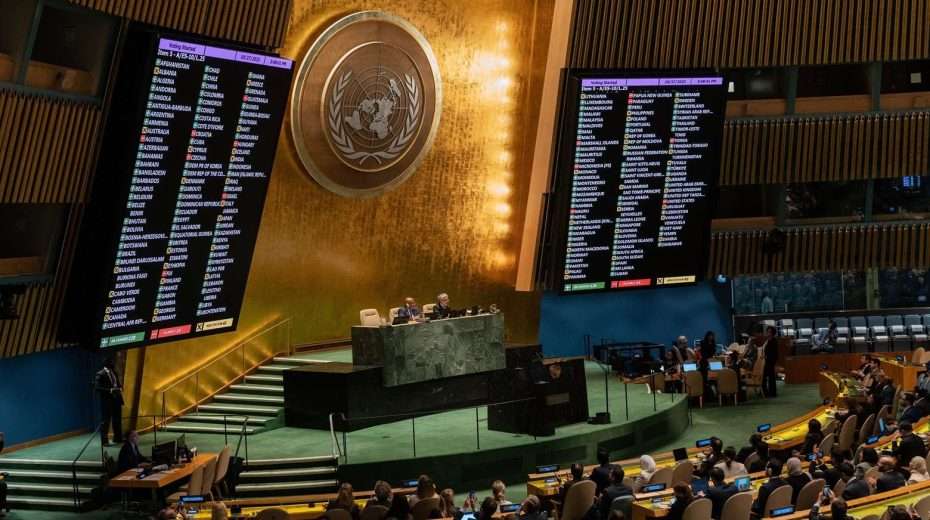


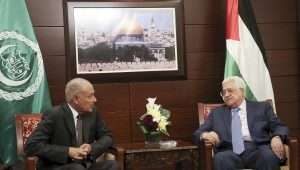
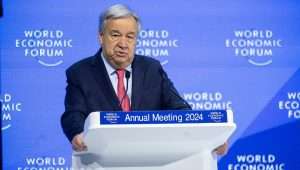





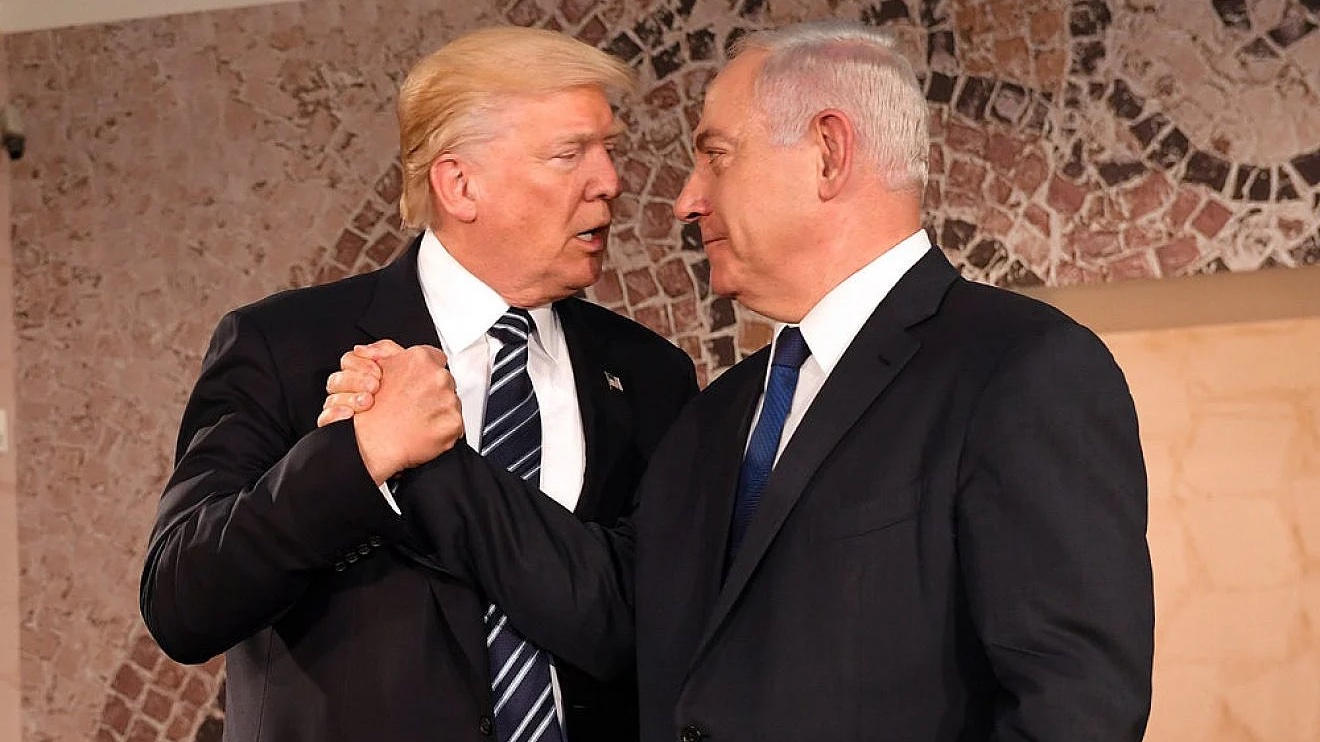
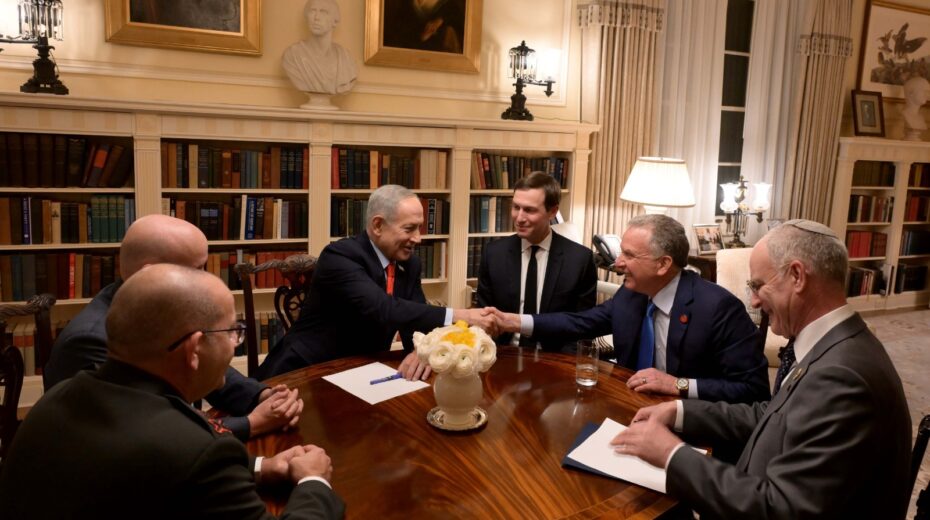

Those voting to make a state inside Israel should also readily accept, “Palestinian,” refugees when the war is over and there is no state or place for those people to go. That would only be fair to the, “Palestinians,” a vote for a state should also carry a guarantee of placing them in a home out of Gaza and Samaria and Judea. There are consequences in voting.